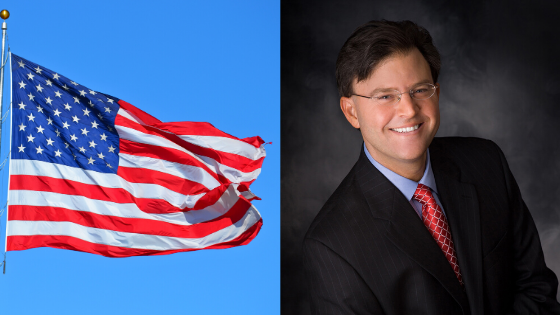I don’t often take the time to respond to the daily torrent of the anti-Trump or “Blame America First” media masquerading as news. There is just no point, really. There is so little objective fact-finding that occurs in the national media that it’s not worth the time. However, today I saw an article that I felt deserved to be responded to. This “news” article, in the AP, boldly proclaims that the virus has proven the “conceit” of American Exceptionalism. Let’s consider that. A conceit is generally defined as an “excessive appreciation of one’s own worth or virtue.” So, “American Exceptionalism” here is simply a form of false pride about the goodness and greatness of America. And, the theory goes, because this virus has exposed an unprepared and inadequate emergency health system—which has been the case through numerous presidencies—that proves there is nothing exceptional about America. How wrong, distorted, and poorly conceived.
You know what American exceptionalism really is? Instances after Katrina/Rita in which the owner/driver of an 18-wheeler in Oregon said he had awakened one morning and felt powerfully moved to drive a truckload of bananas to Louisiana to help with the food problems after the hurricanes. Same story for an enormous number of donated McDonald hamburgers and over 100 Lea’s pies. These kinds of examples are many; a microcosm, of course, but reflective of a much broader response. What about the flooding of New Orleans itself? What about the hundreds of Louisiana sportsmen who drove to the outskirts of New Orleans planning to help rescue as many stranded people as they could; American exceptionalism? What about the thousands of college students who gave up a semester of college to spend months in New Orleans helping the city rebuild? Who filled many of these great needs after the hurricanes? Churches, families, and private businesses; virtually all of whom donated their time and resources because they wanted to help their fellow Louisianans and Americans.
American exceptionalism? Internationally, how about the over $85 billion the United States has spent through the PEPFAR program to defeat AIDS in Africa and globally; further, how many times in our nation’s history have our brave men and women in the military, past and present, stepped into terrible, often barbaric situations all over the world and saved lives from other countries. How many times has American military power been deployed to stop hostile regimes from further cruelty? After WWII, America was in a powerful position to expand its global reach but despite being on, and responsible for, the winning side America did not seek to enlarge its territorial claims. In fact, we did the opposite. Through the Marshall Plan and tremendous American aid and resources we helped other countries rebuild. That is American Exceptionalism.
How about the miracle of our U.S. Constitution which gives rise to our Rule of Law; how about our shared belief that we are endowed by our Creator with certain rights that cannot be taken—all of which gave rise to a government instituted for the preservation of liberty? How about our Bill of Rights which ensures our freedom of speech, free exercise of religion, freedom of the press, and the guarantee that we cannot be deprived of life, liberty, or property without due process of law? Our 2nd Amendment? That we cannot have our doors kicked in at 2:00 am without probable cause and a warrant? That we are guaranteed, every one of us, equal protection of the laws? That we can peacefully petition our government for a redress of grievances—as we are seeing right now across America during the virus? Do we remember how rare all of this is?
I worked in D.C. for many years for two different members of Congress from Louisiana. In those roles, I dealt extensively with our federal agencies, and, at times, state agencies also. After Hurricanes Katrina and Rita, for example, I can’t tell you how slow, disorganized and cumbersome the response was of the federal government generally, and FEMA specifically. However, while these deficiencies evidence the failure of a government structure, they in no way reflect upon the quality and essence that is America.
To conclude otherwise fundamentally misunderstands the premise upon which our country is founded and based and, hence, our exceptionalism. This virus, these Hurricanes, even 9/11 itself, are all examples of an often calcified, lethargic and inefficient federal and state bureaucracy smothered in red tape. America is not perfect. No nation is, because nations are ruled by governments and governments are comprised of flawed human beings. However, our commitment to the ideals enshrined in our founding documents has never wavered. That is why the American spirit is, unquestionably, sterling; American kindness and generosity are unbounded. De Tocqueville observed that “the position of the Americans is therefore quite exceptional,” in Democracy in America, “and it may be believed that no democratic people will ever be placed in a similar one.” Why would he draw this conclusion? Because he recognized the American spirit and the character that anchored it. As President Reagan noted many times, America is the greatest country in the world. That doesn’t mean it’s perfect. But it is, and remains, the last best hope of Earth. And that is exceptional.


